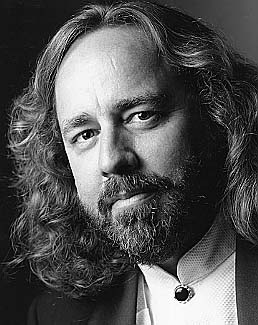

|

Major works by David Colson include Searching Schubert for
orchestra, Quiet Places for viola and vibraphone, Walkin' Sideways for
symphonic wind ensemble, Dragon Music for clarinet, piano and percussion
ensemble, and Water's Edge for string quartet. Recent performances
include Walkin' Sideways by the CSU, Chico Symphonic Wind Ensemble,
Dragon Music (featuring Houston Symphony Orchestra clarinetist Richard
Nunemaker), and Water's Edge by the Sun String Quartet (for whom the
work was written). Searching Schubert has been recorded by the Slovak
Radio Orchestra of Bratislava.
Colson was educated at the Interlochen Arts Academy, the University of Michigan, the University of Iowa, and Rice University where he received the Doctor of Musical Arts degree in composition. Major teachers have included William Bolcom, George Balch Wilson, William Hibbard, Ellsworth Milburn, and Paul Cooper. Awards and honors include the University of Iowa's Philip Greely Clapp Composition Award and Rice University's Sallie Shepherd Perkins Prize for "highest achievement in music."
Throughout his career Colson has been a leader in the performance of new music. He founded the Current and Modern Consort, a new music ensemble based in Ann Arbor, Michigan, and was a member of the Center for New Music at the University of Iowa. At Rice University, he formed the Pierrot Plus Ensemble, the school's new music ensemble.
Colson is also an active conductor. At Rice he was Music Director of the Campanile Orchestra and Shepherd School Chamber Winds, and Assistant Conductor for the Shepherd Symphony. Since 1994, he has been Music Director and Conductor of the Chico Symphony Orchestra.

I composed Dragon Music with the skill of clarinetist Richard Nunemaker in mind; thus, the piano and percussion parts are less difficult to perform. Regardless, I wanted to write a work that would balance the colors and sounds of all the instruments. While there is much musical repetition in this piece, the form is complex and does not thoroughly reveal itself upon the first hearing of the work. It is a composition that is angry and a little bit reckless, yet I hope the listener will also hear other parts of the piece which are defined as possibly more tender and vulnerable.
David Colson